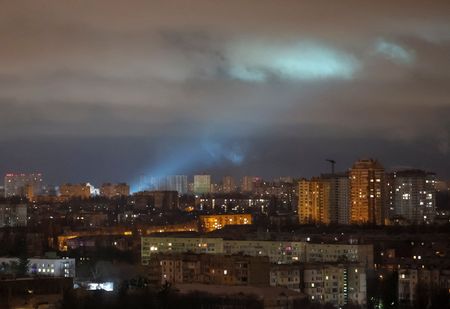By Jennifer Rigby and Mariam Sunny
(Reuters) – The United States’ pause on foreign aid contributions is having a serious impact on global health, hitting programmes fighting polio, HIV and other threats, World Health Organization Director-General Tedros Adhanom Ghebreyesus said on Wednesday.
Tedros urged the U.S. to consider resuming aid funding until solutions can be found.
“There are actions that the U.S. government is taking… which we’re concerned are having a serious impact on global health,” said Tedros in a virtual press conference from Geneva.
Efforts to tackle HIV, polio, mpox and avian flu were all impacted by the U.S. foreign aid pause implemented by President Trump last month shortly after he took office while the programs are reviewed.
In particular, Tedros said, the suspension of funding for the President’s Emergency Plan for AIDS Relief (PEPFAR) had caused an immediate stop to HIV treatment, testing and prevention services in the 50 countries it supports.
Despite the subsequent waiver allowing some services to resume, prevention efforts for at-risk groups were not included, he said.
“Clinics are shuttered and health workers have been put on leave,” he added, saying that the WHO is trying to help countries fill gaps in supplies of anti-retroviral drugs.
Both the funding suspension and the disengagement of U.S. institutions were also affecting the effort to eradicate polio and the response to mpox, he said, and in Myanmar, almost 60,000 people had been left with no access to life-saving services.
“We ask the US to consider continuing its funding at least until solutions can be found,” Tedros said.
As well as the aid freeze, Trump also moved to withdraw the United States from the WHO on the first day of his presidency, which is also hitting collaboration, particularly in fighting outbreaks and on influenza, Tedros said.
For example, the WHO has limited information about the spread of avian influenza among dairy cattle in the U.S., or human cases, although other WHO officials later said that the country was meeting its obligations to declare cases under international health rules.
Maria Van Kerkhove, interim director for pandemics and epidemics, said that WHO had not had influenza reports from the U.S. Centers for Disease Control and Prevention since around January 24, though.
“We are continuing to reach out to our colleagues and the U.S. government agencies. We haven’t heard back from them, but we will continue to reach out, and we hope again that that exchange resumes,” she said.
Tedros also referred to the funding gap for WHO itself. The agency has already reformed its funding model in recent years, but other ideas were also on the table, he said.
These include raising an endowment of $50 billion, although he did not give details about how that would be done. He also said the agency has considered cash recovery, or charging for some of its services, for institutions or people that could pay.
(Reporting by Mariam Sunny in Bengaluru and Jennifer Rigby in London; Editing by Krishna Chandra Eluri and Angus MacSwan)











